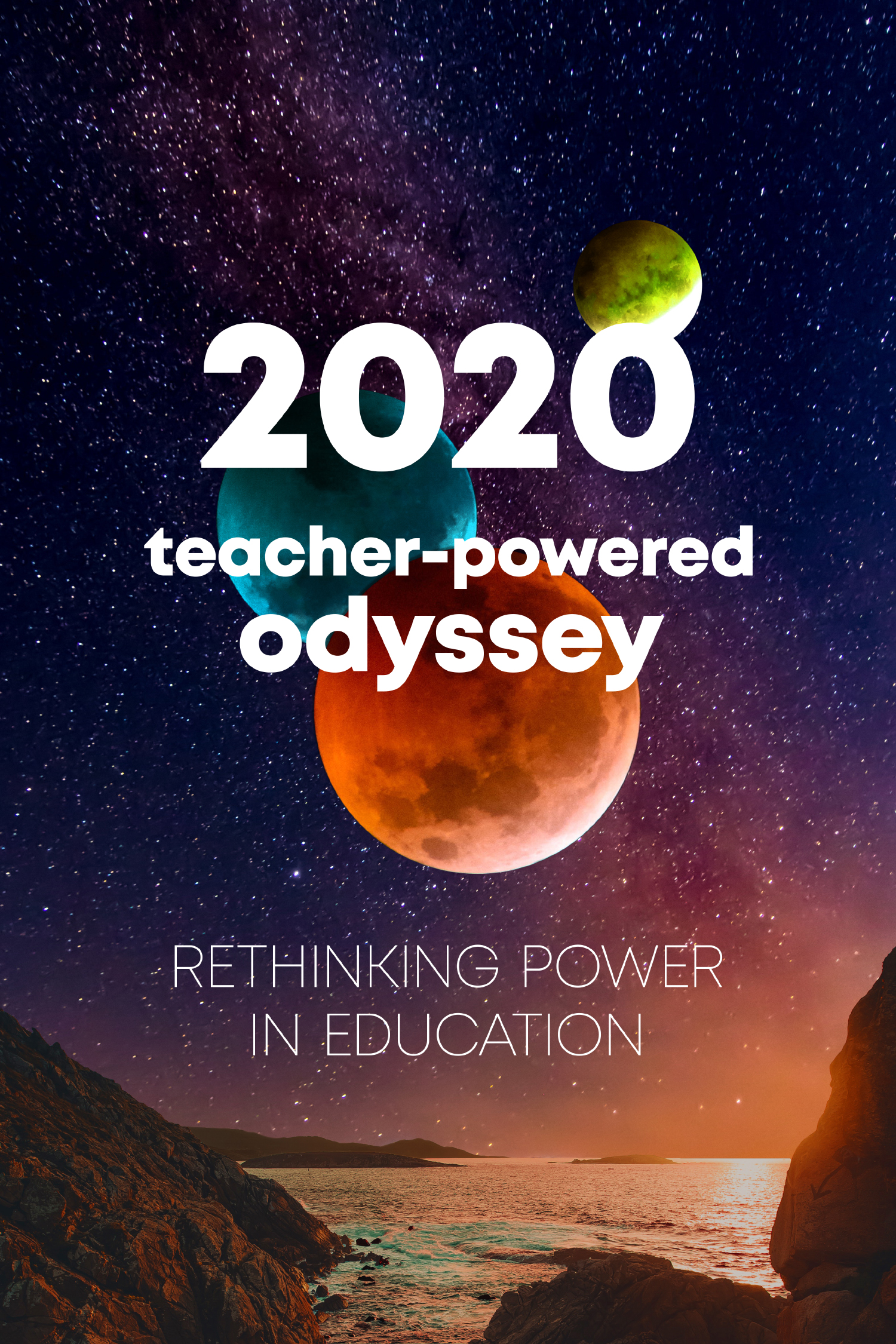“The most common way people give up their power is by thinking they don’t have any.”
—Alice Walker
You have power. Power as a teacher, power as a team of educators, power as a community.
Rethinking power in education is healthy, necessary, and an important step towards a more equitable system—which is why we have chosen this as our theme for the year and for the Teacher-Powered Schools National Conference.
Who is calling the shots? Where are decisions being made? Who is gathering the data, deciding on the questions, analyzing the answers? So many of America’s schools, teams, districts, and systems operate in a status quo twilight zone unable to imagine an education system that doesn’t fit the paradigm we know so well.
As a teacher-powered community we strive to rise above traditional tensions that arise in conversations about power. This is not about unions vs. districts vs. charters. Rather, we keep the focus on students, and ask how best to situate power in order to truly honor their unique interests, assets, identities, and aspirations.
To create student-centered schools designed to meet the needs of all students we need to acknowledge that traditional education power systems, structures, and practices were not designed for this end. Teacher-powered works to break this cycle by moving power and decisions closer to students—to professional educators working in close partnership with the students, families, and communities they serve. Educators who understand students as whole persons, who have collective power to make immediate changes, and do what is best for their community.
Teacher-powered goes way beyond including a teacher on a team or asking a teacher’s opinion on something. Teacher-powered teams aren’t just asking teachers’ opinions, they are creating systems for teachers to make actual decisions that impact student success.
Different teams make different choices depending on their environments, their students, the heritage and culture of the community because these students have different needs. Trusting the professionals closest to those students to make these decisions, together with families, affirms the value of each community.
Moving away from industrial era ideas about bosses and workers allows teacher-powered teams to better govern and run schools to meet the modern needs of students. And yet, going against the status quo is always challenging. When things are hard, the instinct is to revert back to what people know and are comfortable with… To revert back to traditional power structures.

This year we challenge all of you to rethink power in education. The struggle is with ourselves as a larger education community. Can we reimagine teaching, leading, learning? Can we build structures, systems, and practices that support the innovative, the creative, the collaborative? Can we create an equitable system? Can we resist reverting to the status quo when things are hard?
YES! It is being done—by hundreds of teams across the nation. And, we must join together to succeed. Teacher-powered is designed to be done as a team, not just at a school site, but a team of connected educators across the nation.
Be brave, move your team to the next level, reach out and connect with other teacher-powered educators. Bring your power to this movement. Create schools where students and adult educators thrive.
These leaders are transforming education through innovative leadership practices from the ground up. The solutions to our education challenges are coming from within our profession. Be part of the journey. join the Teacher-Powered Network, visit a teacher-powered school, or start a Discussion Starter with your team. Take the first step today.
###
 NEWSLETTER SIGN-UP
NEWSLETTER SIGN-UP




